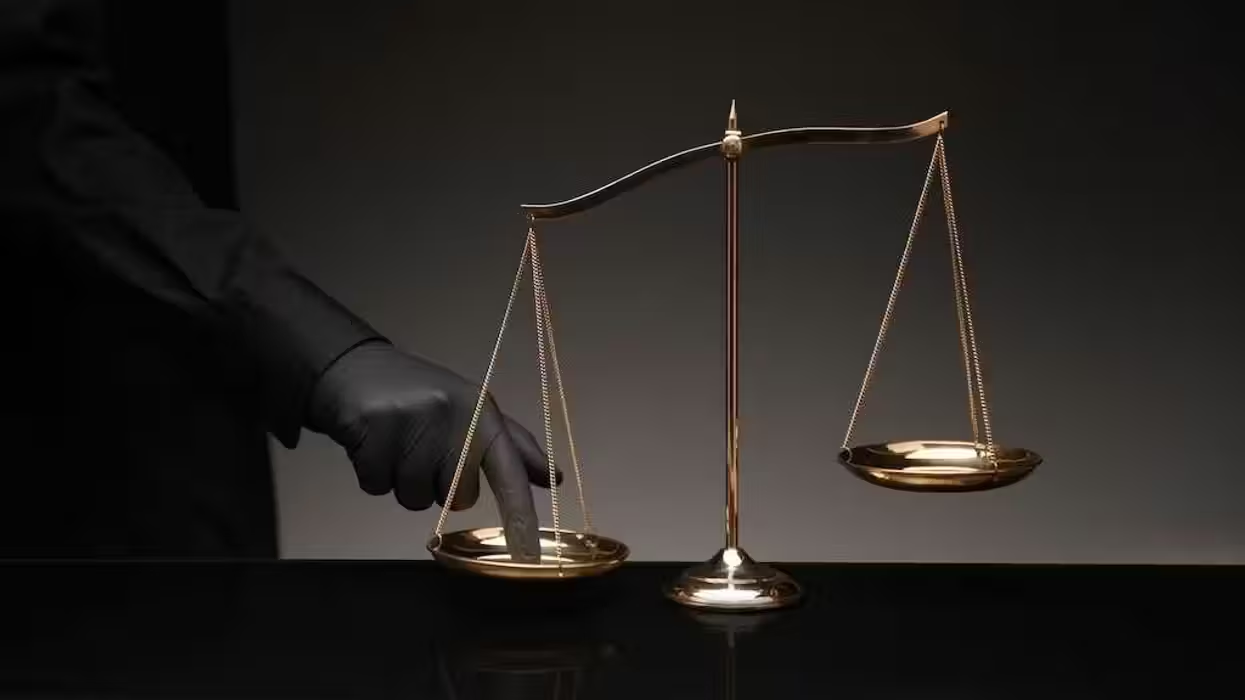
© 2026 Blaze Media LLC. All rights reserved.
"...devastating consequences for individuals and societies around the world."

NEW YORK (AP) -- The global war on drugs has failed and governments should explore legalizing marijuana and other controlled substances, according to a commission that includes former heads of state, a former U.N. secretary-general and a business mogul.
A new report by the Global Commission on Drug Policy argues that the decades-old "global war on drugs has failed, with devastating consequences for individuals and societies around the world." The 24-page paper will be released Thursday.
Groups like the Drug Policy Alliance echo this sentiment:
"Political leaders and public figures should have the courage to articulate publicly what many of them acknowledge privately: that the evidence overwhelmingly demonstrates that repressive strategies will not solve the drug problem, and that the war on drugs has not, and cannot, be won," the report said.
The 19-member commission includes former U.N. Secretary-General Kofi Annan and former U.S. official George P. Schultz, who held cabinet posts under U.S. Presidents Ronald Reagan and Richard Nixon. Others include former U.S. Federal Reserve chairman Paul Volcker, former presidents of Mexico, Brazil and Colombia, writers Carlos Fuentes and Mario Vargas Llosa, U.K. business mogul Richard Branson and the current prime minister of Greece.
Instead of punishing users who the report says "do no harm to others," the commission argues that governments should end criminalization of drug use, experiment with legal models that would undermine organized crime syndicates and offer health and treatment services for drug-users in need.
The commission called for drug policies based on methods empirically proven to reduce crime, lead to better health and promote economic and social development.

The commission is especially critical of the United States, which its members say must lead changing its anti-drug policies from being guided by anti-crime approaches to ones rooted in healthcare and human rights.
"We hope this country (the U.S.) at least starts to think there are alternatives," former Colombian president Cesar Gaviria told The Associated Press by phone. "We don't see the U.S. evolving in a way that is complatible with our (countries') long-term interests."
The office of White House drug czar Gil Kerlikowske said the report was misguided.
"Drug addiction is a disease that can be successfully prevented and treated. Making drugs more available - as this report suggests - will make it harder to keep our communities healthy and safe," Office of National Drug Control Policy spokesman Rafael Lemaitre said.
That office cites statistics showing declines in U.S. drug use compared to 30 years ago, along with a more recent 46 percent drop in current cocaine use among young adults over the last five years.
The report cited U.N. estimates that opiate use increased 34.5 percent worldwide and cocaine 27 percent from 1998 to 2008, while the use of cannabis, or marijuana, was up 8.5 percent.
Want to leave a tip?
We answer to you. Help keep our content free of advertisers and big tech censorship by leaving a tip today.
Want to join the conversation?
Already a subscriber?
Billy Hallowell is a digital TV host and interviewer for Faithwire and CBN News and the co-host of CBN’s "Quick Start Podcast."
Billy Hallowell
Billy Hallowell is a digital TV host and interviewer for Faithwire and CBN News and the co-host of CBN’s "Quick Start Podcast."
more stories
Sign up for the Blaze newsletter
By signing up, you agree to our Privacy Policy and Terms of Use, and agree to receive content that may sometimes include advertisements. You may opt out at any time.
Related Content
© 2026 Blaze Media LLC. All rights reserved.
Get the stories that matter most delivered directly to your inbox.
By signing up, you agree to our Privacy Policy and Terms of Use, and agree to receive content that may sometimes include advertisements. You may opt out at any time.






